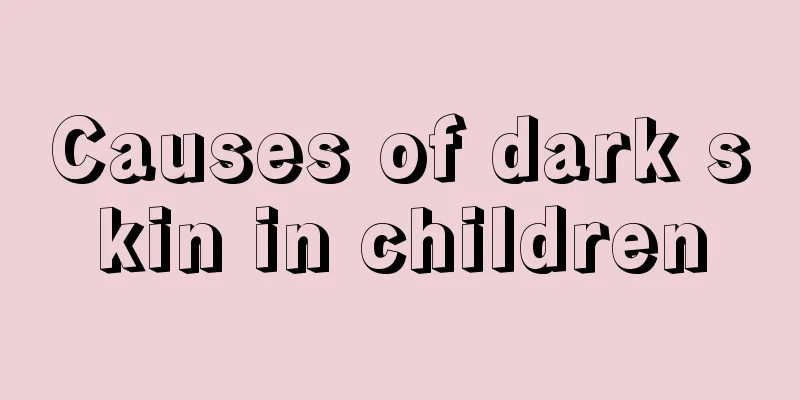How to care for infant pneumonia?

|
Some babies suffer from severe pneumonia and need to receive timely treatment to ensure their health and avoid dangerous situations caused by pneumonia, which will seriously threaten the health of the children. It is also necessary to avoid worsening of the disease. So how should babies with pneumonia be cared for? Let me introduce it to you below. Children with pneumonia need active anti-inflammatory treatment. If they are not treated promptly, the disease may become chronic. It is not easy to cure and may cause complications. If a child has pneumonia, he or she should be sent to the hospital for treatment in time, and those with serious conditions should be hospitalized. Infant pneumonia care: (1) Environment: The indoor environment should have plenty of sunlight and fresh air. A quiet and comfortable environment can enable sick children to rest and sleep better, which is conducive to the improvement of their condition. The room where the sick child lives should be ventilated and clean. When cleaning, use wet mopping and wet sweeping to prevent dust from flying around and irritating the inflamed respiratory tract and aggravating the cough. To protect air circulation, open windows for ventilation 2-3 times a day, each time for 20-30 minutes. The indoor temperature should be maintained at 18-20℃ and the humidity at 55-65. If the air is dry, put an uncovered kettle on the stove to allow water vapor to increase the indoor humidity to prevent the child from having dry mouth. (2) Diet: Children with pneumonia should consume adequate water and high-calorie, high-vitamin, easily digestible foods during the illness. The best food for infants is dairy products. Do not wean the baby at this time. If the baby is holding back milk too much and has difficulty sucking milk, you can squeeze out the milk and feed it slowly with a spoon. For bottle-fed babies, add some rice soup to the milk. Older children can take semi-liquid food, such as porridge, soft noodles, rice soup, egg soup, etc., to ensure adequate water and vitamins. (3) Keep warm: The temperature is lower in winter and spring, so you should pay special attention to keeping warm, but it should be done in moderation. When you have a fever, you should loosen your clothes and blankets to avoid heat dissipation difficulties, high fever convulsions, or excessive sweating. Sweat absorption and evaporation of skin heat can cause colds and worsen the condition. The above is my opinion on this issue. If the child has the above-mentioned diseases, the child should pay attention to taking timely treatment methods and corresponding treatments to ensure the child's physical health and avoid the deterioration of the child due to the above-mentioned problems. Finally, I wish the child a speedy recovery. |
<<: What is the recovery period for infant pneumonia?
>>: How to treat baby forehead eczema?
Recommend
Is garlic effective in treating children's cough?
Garlic plays many roles in our lives. Not only do...
What causes pneumonia in children? Three reasons to keep in mind
Pediatric pneumonia is a disease that is easy to ...
What causes peeling of children's fingers?
Many children do not know how to maintain good hy...
What to do if blisters appear on children's legs
We all know that children's skin is very deli...
One-year-old baby enteritis symptoms
If a one-year-old baby has enteritis, there will ...
My baby has bad breath, what's going on?
Nowadays, many parents report that their babies h...
What to do if your child has cold hands and feet
The physical health of children is an issue that ...
Symptoms of fright in eight-month-old babies
The body of an eight-month-old baby is still rela...
Causes of yellow hair in children
Generally speaking, in daily life, many children&...
Is baby diarrhea contagious?
Under normal circumstances, baby diarrhea is gene...
What should I do if my baby has one leg longer than the other?
It is not particularly beautiful to have one leg ...
Why is the baby's neck soft?
We all know that when babies are young, mothers w...
What is the reason for nose bleeding in a 1 and a half year old baby?
Nosebleeds are common in adults, but many younger...
What should children drink if they are allergic to milk powder?
It is impossible for babies to always eat breast ...
How to make newborns fall asleep quickly
For some newborns, they spend most of their time ...









